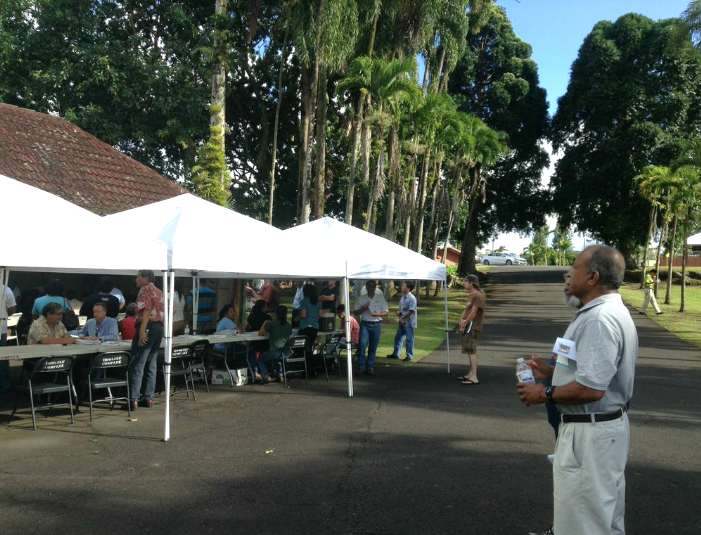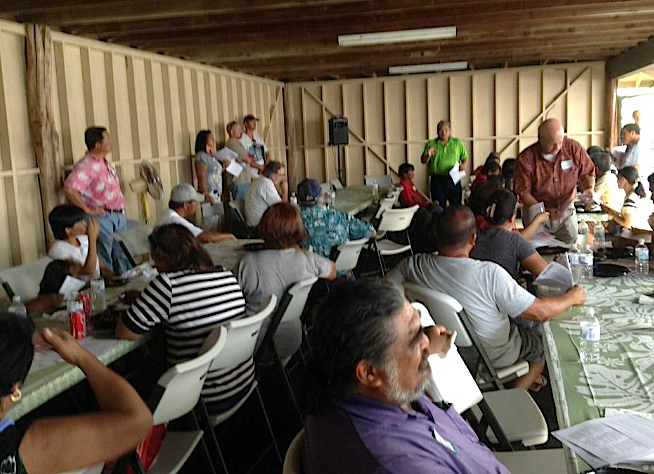Richard Ha writes:
Soon after Hurricane Iselle hit the Big Island, the Hawaii Farmers and Ranchers United (HFRU) core group called a meeting. We wanted to assess damage, and what we found was that some Big Island farmers were in desperate need.
The human stories which were told by some of the affected farmers were hard to take. One of the independent processors told about being in church on Sunday just after the hurricane and not being able to look a farmer, there with his family, in the eye. They both knew what this damage meant to the farmers. The processor told us at the meeting that it brought him to tears.
Diane Ley, executive director of the USDA’s Farm Service Agency, was on the phone at the after-hours emergency meeting. Scott Enright, who is chair of the Department of Agriculture, participated by cell phone. He had just landed on O‘ahu and was driving to a meeting.
Farmers and their friends pulled together to bring agencies with resources to meet with farmers at one stop. W.H. Shipman, Ltd. made their offices available to the group for meetings. Lorie Farrell did the real heavy lifting by organizing everything. And the support agencies responded.
We met on Tuesday, on W.H. Shipman, Ltd.’s ground, with about 180 people in attendance. Chris Kanazawa, head of the USDA’s Rural Development; Scott Enright, director of the Board of Agriculture; Laverne Omori, county director of Research and Development. So was Chris Manfredi, president of the Hawaii Farm Bureau.
Various agencies had booths where they provided information about their programs. People gave presentations. AgriLogic, which specializes in risk management insurance for farmers, was there. One of the priorities of HFRU is to increase the percentage of farmers covered by crop insurance.
Mayor Billy Kenoi announced he is hiring DayDay Hopkins to be liaison to the farmers. That is a huge deal; DayDay knows farming. I met two county council candidates for the first time that day, Danny Paleka and Ron Gonzales, and after having short conversations, it was clear to me that both are very thoughtful and know what the spirit of aloha is all about.
Yesterday I read in the Star-Advertiser that 287,000 Hawaii residents receive aid through the Hawaii Foodbank and its agencies. I called up Ross Sibucao, the young president of the Hawaii Papaya Industry Association, and asked him: “How many papaya farmers are on food stamps?”
He chuckled at my even asking the question. He said, “Probably zero.”
The farmers are the ones feeding the people. They do important work.


